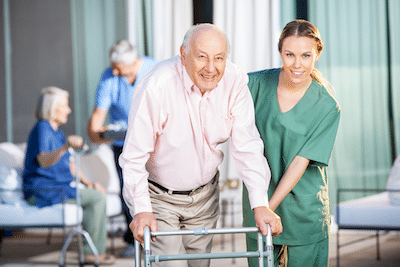
Helping elderly parents is a multifaceted and emotional experience that can be draining on everyone. There are some ways to make your parent's care easier and reduce conflict. These tips will help you select the best Medicare plan and apply to benefits. To help you with discharge and hospitalization, you can hire a patient advocate. These tips can help you care better for your parents as they age and lower your chance of getting dementia.
Caring for elderly parents can be a complex experience.
Caring for an older parent can present many challenges. Many adults are not equipped to care for elderly parents. Sometimes siblings are not prepared, so a competent child might become helpless. It is important to establish relationships with family members and openly discuss your feelings in such situations. The caregiver needs to be honest about both his or her feelings and the feelings that are shared by the care-receiver. Caregiving is a multi-faceted experience and must be approached in a thoughtful, caring way.
Caring for a parent can bring a variety of emotions. Some caregivers feel joy and comfort, while others experience deep depression and worry. Research shows caregivers are more susceptible to clinical depression than the general population. Guilt can be felt at many times while caring for someone else. Here are a few ways to cope. Learn Sustenance & Hope for Caregivers of Older Parents: Bread of Angels

It can be exhausting both emotionally and physically.
Caring to elderly parents can be exhausting. Even friends who don't know the responsibilities of caring for elderly parents may not be able to sympathize or understand the stress involved. Caring for a parent is a time-consuming task that can affect family time. It is possible for the caregiver to feel depressed or isolated. Guilt can be a constant companion. This mental fatigue can cause confusion and even worse than physical exhaustion.
As a family caregiver, it is possible to have to confront parents about their concerns and needs. Aging can be scary for seniors, who often fear the loss of their independence and the long-term effects of serious medical conditions. You may also find them hiding new symptoms or becoming secretive. You may experience an identity crisis as you watch your parents make dangerous decisions. It is possible to manage stress by recognising the signs of physical and emotional exhaustion and taking actions accordingly.
It can reduce tensions, family arguments, and other conflicts
Maintaining a good communication channel with your elderly parents will prevent any family conflicts. Regular family meetings are a great way to discuss any changes in care and potential problems. Technology can make communication easier, especially if you have elderly parents that aren’t at the same time. To facilitate these family meetings, you can bring in a third-party. And remember that open communication between siblings can help foster a strong intergenerational bond.
Siblings can disagree over who should care for their elderly parents. There may be arguments about who pays for care, what the parent should consume, or how much money to spend on a task. In these cases, it is important to remember that neither one is right. Although it is difficult to see an elderly parent suffer, there shouldn't be any family disputes over who should take their care.

It can reduce dementia risk
Engaging in physical and mentally stimulating activities can help reduce dementia's risk to your parents, even with the increase in dementia incidence. Engaging in regular physical activities is an excellent way to keep the brain active and fit, and it has many benefits for your health and well-being. Physical activities can improve circulation and heart health, and they are also beneficial for your mental wellbeing. Some of the activities to consider are taking up a class or learning a new language. Learning a new skill and language can challenge your brain.
Exercise also lowers the risk of dementia. Research shows that people with more education are at lower risk of developing Alzheimer's disease. Higher education leads to stronger brain networks and better ability to repair cell damage. This damage is what causes Alzheimer's Disease. Make sure you do everything you can for your parent to stay as healthy and happy as possible. These activities can be incorporated into your daily life. Even if your schedule doesn't allow you to exercise, it is worth taking a walk for 30 minutes or using the stairs instead.